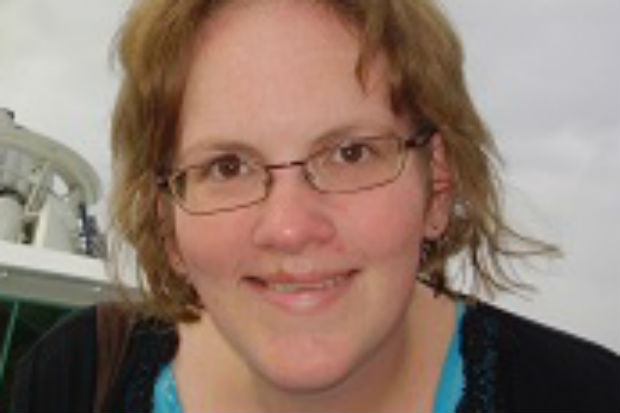This week, 20 to 26 October, is Ace Awareness Week. Ace is an umbrella term to encompass anyone who fits within the spectrum of asexuality. An asexual person is someone who experiences little to no sexual attraction and/or sexual desire. You can find out more here.
Robin, gives a personal view of the status of asexual civil servants.
Robin's story

#Thisisme – my name is Robin and I work for the Rural Payments Agency in Exeter. I am an autistic heteroromantic asexual woman. This means that I’m attracted romantically to men but not sexually.
I am fortunate not to have experienced any discrimination on the basis of my sexuality (aphobia) at work (sadly, dating as an asexual person is a different story). There are still many misconceptions out there with regard to asexuality though: when I discussed possible future wedding plans with one colleague, he asked: “But how can you get married if you are asexual?”
In 2008, I looked into the possibility of starting a network for asexual staff but didn’t get enough interest to justify forming a separate one. I then approached the LGB&T Defra Network to see if they would be interested in opening up their membership to include asexual people.
This network had started life as the LGB Network in 2002. Following an expression of interest from trans staff, the network was later renamed the 'LGB&T Network’ (the ‘&’ was added as requested by some of the new trans members to reflect the fact that gender identity is separate from sexual orientation). Following my inquiry, it was agreed that membership would be extended to asexuals and the name was changed to include the ‘A’ in 2010. I was a member of the LGBA&T Network steering group for several years, until I left to be able to give more time to another of our networks, Dyslexia and Neurodiversity.
During my time on the Defra LGBA&T Network steering group, I made several contributions towards increasing the visibility of asexual issues within the Civil Service. For example, during the RPA Diversity Declaration campaign in 2010, we were asked to update our personal details to include our sexual orientation but the only options originally offered were Bisexual, Gay, Heterosexual, Lesbian or ‘prefer not to say’. I was able to get this amended so that ‘asexual’ was included, leading to 47 people identifying as asexual. PCS Proud voted to allow asexual people (‘aces’) to join as full members, following my suggestions during a seminar in November 2012.
Asexuals face similar issues to the bisexual community, who sometimes experience discrimination from both gay and straight peers, as well as being under-represented by the media. Previous Civil Service People Surveys have shown that colleagues identifying as bisexual or with ‘other’ minority sexual orientations consistently report lower engagement and lower wellbeing than their gay, lesbian and heterosexual colleagues. They are also more likely to report being a victim of bullying, harassment and discrimination.
So, what is being done within the Civil Service to address this? In 2018, the Civil Service Rainbow Alliance changed its name to the Civil Service LGBT+ Network, to demonstrate that this network is for everyone with a minority sexual orientation, gender identity or sex characteristics. They also run events across the country that are open and welcoming to asexual civil servants via Bi Space, an initiative run by bi+ civil servants for bi+ civil servants, which includes an online forum to discuss ace-related issues.
From a personal perspective, I feel that there is still some way to go before asexual people achieve full visibility and asexuality is regarded as a ‘valid’ sexual orientation. Many internal surveys still do not include ‘asexual’ in the sexual orientation dropdown options: sometimes the language of the Civil Service seems ace-inclusive, sometimes it doesn’t. However, as there are proposals to include ‘asexual’ in the options on the next national census and the Office of National Statistics monitoring data, I am hopeful that in the near future it will no longer be necessary to tick the ‘other’ box. #AcesAreNotOther!

1 comment
Comment by Gavin Thomas posted on
Thank you Robin for sharing with us your personal story. Whilst as a Straight Ally, I am encouraged that my LGBT+ colleagues feel empowered to come to work and be authentic.
However, recent events and in particular attacks of the LGBT+ community demonstrate that there is still much more needs to be done if we are to ensure a safe and inclusive environment.